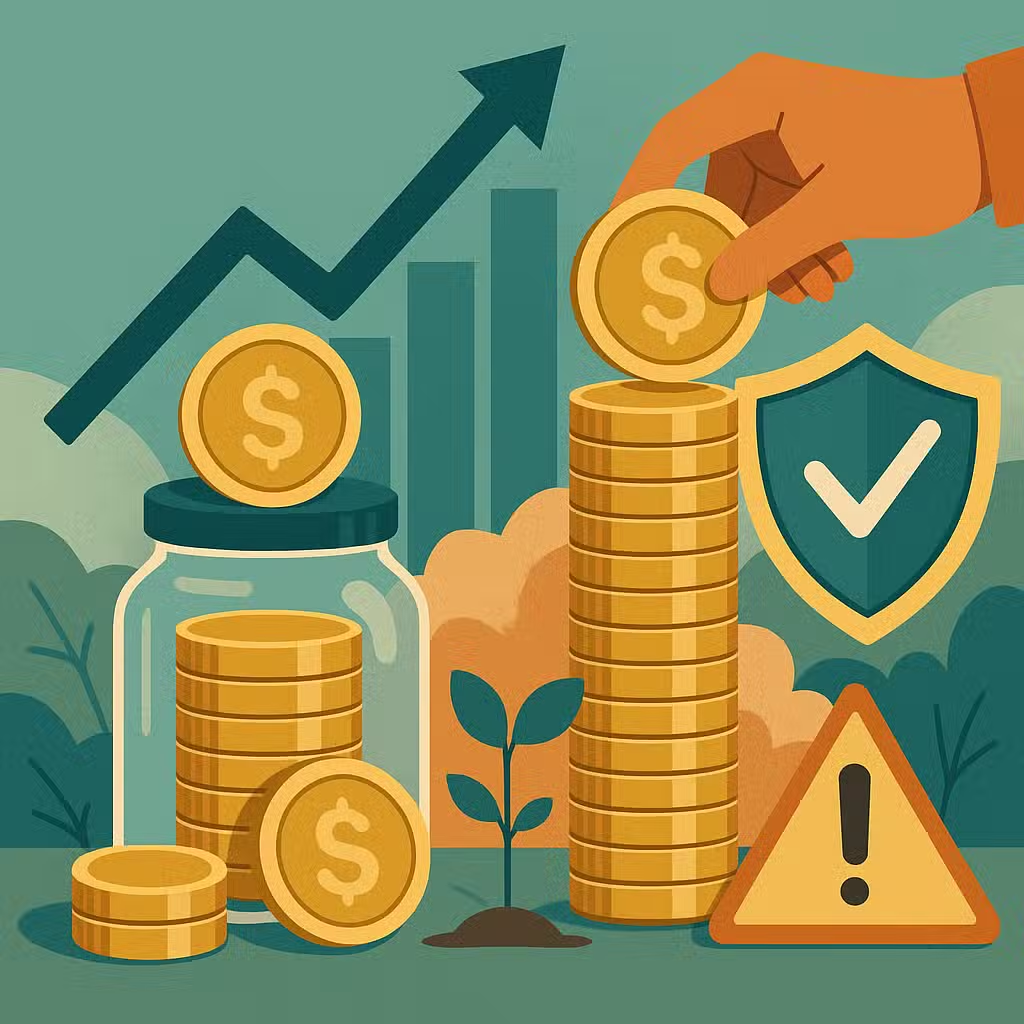Practical Money Tips to Help Investors Build Lasting Financial Security and Reduce Risk
Worrying about running out of money is a lot like checking your gas tank before a long drive—you want to make sure you’ll get where you’re going without breaking down. This is important for everyone, especially investors, because protecting your money means you can keep growing it over time.
Why Investors Care About Not Going Broke
If you lose control of your personal finances, you might have to sell investments at the wrong time or miss out on good opportunities. Being smart with your money helps you stay invested for the long run and avoid panic when things get tough in the market.
5 Steps That Help You Avoid Going Broke
- Make a Budget: Just like a coach needs a game plan, you need to know where your money is going. Writing down what you earn and spend can help you avoid overspending and reach your goals. According to Experian, budgeting helps people avoid debt and be ready for surprises.
- Build an Emergency Fund: Big surprises—like a broken car or a hospital bill—can throw you off track. Try to save $1,000 first, then work up to having three to six months of living expenses saved. A 2025 U.S. News & World Report survey found that 42% of Americans don’t have any emergency savings, and 40% couldn’t pay for a $1,000 emergency if it happened.
- Handle Credit Cards Wisely: Credit cards are helpful but can be dangerous if you don’t pay them off. The Federal Reserve Bank of New York reports that 60% of borrowers carry a balance month to month, with interest rates averaging 23%. Paying just the minimum means you stay in debt for years. Focus on paying off cards with the highest interest first.
- Automate Your Savings: “Set it and forget it” is a great way to save money without thinking about it. Many banks will let you automatically move money to savings each payday or round up your purchases to save the change. This builds up your emergency fund and helps you reach other goals.
- Consider a Side Hustle: If one job isn’t enough, a side gig—like dog walking or freelance work—can bring in extra cash. Use this money to pay off debt or build your emergency fund before spending it on fun stuff.
Bull Case: Why These Tips Work
- Staying Ready for Emergencies: Having savings means you won’t have to sell your investments during market downturns or take on costly debt.
- More Control: Budgeting and automation take the guesswork out of money management, helping you build wealth over time.
- Less Stress: Knowing you have a plan can help you make smarter, calmer decisions with your investments.
Bear Case: Challenges and Risks
- Low Wages or High Costs: If your income is tight or costs keep rising, saving money can feel impossible.
- Unexpected Events: Even the best plans can be shaken by big, unpredictable expenses.
- Temptation to Spend: It’s easy to slip back into bad habits if you don’t check your budget or review your goals.
Historical Context: Why This Matters Now
During the Great Recession of 2008, millions of Americans who didn’t have emergency savings had to sell investments at a loss or take on expensive loans. According to a Federal Reserve report, people with even a small emergency fund were much more likely to weather the storm and recover faster.
Investor Takeaway
- Start by tracking your income and spending—use apps or paper, whatever works for you.
- Save up at least $1,000 for emergencies, then aim for three to six months of living costs.
- Pay off high-interest credit cards as soon as you can; avoid just making minimum payments.
- Set up automatic transfers to savings so you don’t have to think about it.
- If money is tight, look for ways to earn extra income and use it to build a safety net.
By following these simple steps, you can protect yourself from going broke—and keep your investment plans on track, no matter what life throws your way.
For the full original report, see Yahoo Finance







